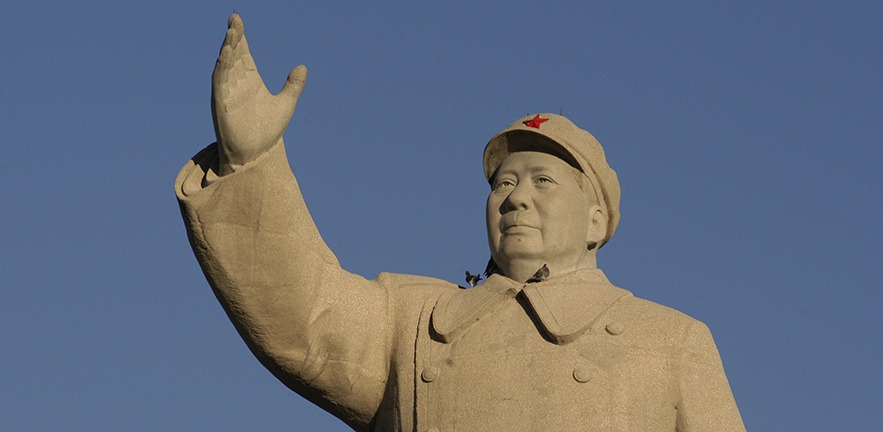China’s economic success is based on the continued influence – not in spite of – the principles and institutions of Mao Zedong, says a new book, Mao and Markets, co-authored by Professor Christopher Marquis of Cambridge Judge Business School.

As China opened up its economy over the past four decades, conventional wisdom held that the country’s growing embrace of free markets would lead to a more liberal society and the shedding of a state-controlled economy. Such conventional wisdom has proved palpably wrong, argues a new book, Mao and Markets: The Communist Roots of Chinese Enterprise, co-authored by Professor Christopher Marquis of Cambridge Judge Business School.
The book, published today (15 November) in the US by Yale University Press, is co-authored by Christopher Marquis, Sinyi Professor of Chinese Management at Cambridge Judge, and Kunyuan Qiao of McDonough School of Business at Georgetown University in Washington. The book will be published in the UK in January.
Just a week after publication, the influential Financial Times columnist Martin Wolf named Mao and Markets one of his “Best Books of 2022: Economics”. He said that “this important book” shows that beliefs and hopes that China would become more democratic as it moved toward free market capitalism “were always naive”.
China is even more hardline communist under current leader Xi
The 372-page book outlines how China’s economic success is based on the continuing influence of Mao Zedong (1893-1978), the first chairman of the Chinese Communist Party from 1949, and how, despite growing prosperity under the economic reforms begun by Deng Xiaoping in 1978, the country has become even more “hardline communist” under current President Xi Jinping.
China’s annual gross domestic product grew at an average rate of 9.45% between 1978 and 2019, while GDP per capita increased 60-fold.
Why Mao’s continuing influence has been overlooked
“While Western observers typically attribute China’s current political economy to Deng Xiaoping’s formulation of a socialist market economy, Mao’s enduring effects on China’s contemporary economic development have largely been ignored,” Mao and Markets says in its conclusion.
“The reason that so many commentators have been wrong about China’s future over the years is that they have failed to account for its history – in particular the legacy of Mao,” and his principles, mass campaigns and institutions.
Maoist ideology and free enterprise go hand in hand in today’s China
“Mao’s effects on China and the Chinese population have been pervasive,” and Chinese companies see no contradiction between commercial drive and dedication to Maoist ideology.
Last month, Xi Jinping was granted an unprecedented third five-year term as general secretary of China’s Communist Party at the party’s National Congress in Beijing’s Great Hall of the People. In a series of articles written for top publications around the time of the Congress, Christopher outlined how Xi has followed Mao’s “playbook” in several areas including industrial policy and an initial focus on areas outside the big cities.


